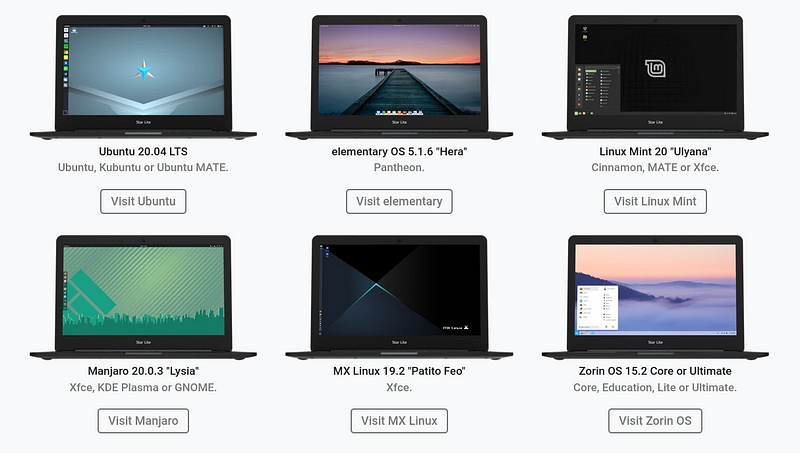What Every Linux PC Company Should Learn From Star Labs

Linux hardware company Star Labs — not to be confused with the fictional facility responsible for metahumans — first crossed my radar with the release of its fantastic Star LabTop Mk III. Here was a laptop designed in-house with the performance to prove it could compete with bigger fish in the Linux sea like Dell. But now Star Labs has captured my attention for an entirely different reason. They’ve been quietly and diligently doing something awesome; something every single Linux PC company should be doing.
When you purchase a laptop from Star Labs — such as the upcoming LabTop Mk IV — you can choose to have a sizable variety of Linux distributions (9 by my count; double that if you count various desktop environments and versions) or even Windows 10 preinstalled. I’d wager that Star Labs offers the most comprehensive OS list of any OEM out there.
Can Star Labs actually support all these distributions though? Here’s their answer:
“We try to,” the company writes via Twitter. “Technically, our support will cover any compatibility problems with the distro’s we offer (i.e. installing firmware updates, lid close not suspending). That said, we always try and help. Whilst we can’t guarantee that we can help with other problems but our support team has helped with issues ranging from VPN’s to themes.”
That alone is praiseworthy, but in a move that deserves serious recognition, Star Labs also conducts and publishes comprehensive Compatibility Reports for a strong selection of Linux distributions beyond the ones it preinstalls.
Need to use a niche distro like Kali Linux? Prefer the Arch-based Endeavour OS? Star Labs has you covered. Maybe your work demands an Enterprise solution like RHEL? They’ve tested that too. Here’s the complete list of operating systems the company generates Compatibility Reports for:
- Deepin 20
- CentOS 8.2
- Endeavour OS
- Ubuntu 20.04
- Windows 10
- Zorin OS 15.2
- elementary OS 5.1.5
- openSUSE Leap 15.2
- Fedora 32
- RHEL
- Linux Mint 20
- MX Linux 19.2
- Manjaro 20
- Parrot OS
- Peppermint 10
- Qubes OS
- Solus 4.1 Budgie
- Tails
Star Labs goes beyond merely ensuring that the distribution installs and runs. They seem to painstakingly test every facet of the hardware to ensure it’s playing nice with the software.
ABOVE: I break down the newest laptops from 2 other great Linux hardware companies.
Take this report for Deepin 20 as a prime example. Everything from touchpad gestures to every function key to data transfer is tested. This includes webcam operation, WiFi connectivity, Bluetooth functionality (connecting keyboards, mice and audio peripherals), USB-C output and input, suspend actions when closing the lid, power and charging LED status lights, and much more.
It seems that literally every possible function of the laptop is tested against each Linux OS (and Windows 10) to ensure that if customers choose to nuke and pave their new system with a distro of their choice, things are going to “just work.” It also removes a level of anxiety from potential customers.
This is impressive to say the least. I’d love to feel 100% certain that if I installed X Linux distribution on a laptop like the ThinkPad P53 or System76 Oryx Pro that it would work flawlessly out of the box.
Star Labs’ Sean Rhodes tells me they’ve always done this (the company was founded in 2016 in the best place ever: a pub) and the number of Compatibility Reports continues to expand based on customer requests.
So get your requests in?
On a related note, Star Labs is about to launch something sorely needed in the Linux laptop space: an affordable one! Pre-orders and more information about the Star Lite Mk III can be found here.
Despite being based in the UK, Star Labs ships worldwide and offers completely free shipping to several countries.


Member discussion